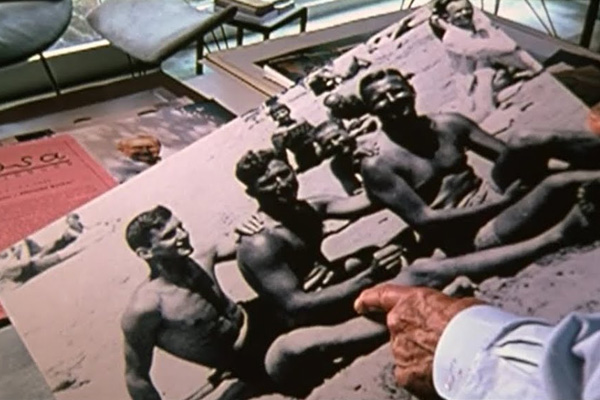The Centre for Human Rights, University of Pretoria in association with the Johannesburg Holocaust & Genocide Centre invites you to a public screening of ‘PARAGRAPH 175’
During the Nazi regime, there was widespread persecution of homosexual men and women. Thousands were murdered in concentration camps. Paragraph 175 – a powerful and disturbing documentary, narrated by Rupert Everett – presents for the first time the largely untold testimonies of those who survived.
Venue: Law Auditorium(1-54), Law Building , UP
Date: Friday, 6 June 2014
Time: 12:00 - 14:00
Entrance is free. No RSVP necessary.
This public screening of Paragraph 175 is arranged in conjunction with the ‘In Whom Can I Still Trust?’ exhibition that is on view in the Law Building until 13 June 2014.
Paragaph 175
Paragraph 175 is a documentary film released in 2000, directed by Rob Epstein and Jeffrey Friedman, and narrated by Rupert Everett. The film chronicles the lives of several gay men and one lesbian who were persecuted by the Nazis. The gay men were arrested by the Nazis for the crime of homosexuality under Paragraph 175, the sodomy provision of the German penal code, dating back to 1871.
Between 1933 and 1945, 100,000 men were arrested under Paragraph 175. Some were imprisoned, others were sent to concentration camps. Only about 4,000 survived.
In 2000, fewer than ten of these men were known to be living. Five come forward in the documentary to tell their stories for the first time, considered to be among the last untold stories of the Third Reich.
Paragraph 175 tells of a gap in the historical record and reveals the lasting consequences, as told through personal stories of gay men and women who lived through it, including: Karl Gorath; Gad Beck, the half-Jewish resistance fighter who spent the war helping refugees escape Berlin; Annette Eick, the Jewish lesbian who escaped to England with the help of a woman she loved; Albrecht Becker, German Christian photographer, who was arrested and imprisoned for homosexuality, then joined the army on his release because he "wanted to be with men"; Pierre Seel, the French Alsatian teenager, who watched as his lover was eaten alive by dogs in the camps.
‘In Whom Can I Still Trust?’ Exhibition
This powerful visual testimony to both oppression and resilience was developed by the Homosexual and Lesbian Archive in Amsterdam and has been redesigned and developed for South Africa. It makes use of archive photographs, personal testimonies and video clips detailing the largely untold history of homosexual oppression in Nazi Germany and relates the historical narrative to the prejudices that still exist today.
Through additional panels prepared by the Gay and Lesbian Archives (GALA) and the screening of the South African version of the global “It Gets Better” advocacy campaign, the exhibition aims to highlight the progress made, and challenges faced, in ensuring the protection of sexual minorities in South Africa.
The Centre for Human Rights and the Johannesburg Holocaust & Genocide Centre are committed to using the platform of history to engage with contemporary issues and are providing students, academics and the general public with an opportunity to discuss and raise awareness of discrimination based on sexual identity.
In Whom Can I Still Trust? will be on display at the Centre for Human Rights on the first floor of the Law Building at the Faculty of Law, University of Pretoria from 16 May until 13 June 2014.
